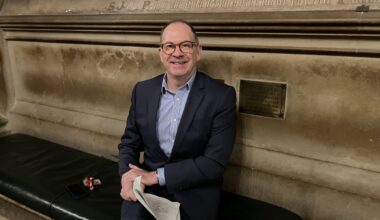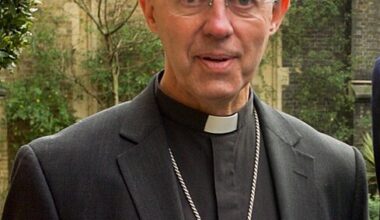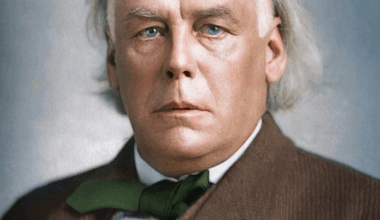
Introduction
Jared Huffman is the Democratic representative for California’s 2nd congressional district and the only open non-believer in the US Congress. He is also at the forefront of the fight against Christian nationalism in America. He helped found the Congressional Freethought Caucus and the Stop Project 2025 Task Force. Andrew L. Seidel, constitutional attorney and author of The Founding Myth: Why Christian Nationalism Is Un-American and American Crusade: How the Supreme Court is Weaponizing Religious Freedom (and Freethinker contributor) had this to say about Huffman:
Rep. Jared Huffman is unafraid to publicly declare his belief in church-state separation and his lack of religion. That fearlessness is something we rarely see in American politicians, and it gives me hope for our future. There is no more stalwart defender of the separation of church and state than Rep. Huffman.
I recently spoke with Huffman over Zoom about his career and his opposition to the theocratic agenda of a future Donald Trump administration. Below is a lightly edited transcript of our conversation.
Interview
Daniel James Sharp: You are the only open non-believer in Congress. Could you tell us about that, and your personal background regarding religion?
Representative Jared Huffman: I had no intention of being known as the only open non-believer in Congress when I got elected back in 2012. I have been without religion for most of my adult life and in recent years came to sort of loosely identify as a humanist. But that was something I largely kept to myself. I had never been asked about it in politics. I’d spent twelve years in local government and six years in the California State Assembly and I could not imagine that it would ever come to be something I was known for in Congress.
But what I learned pretty early on is that there are all of these publications that want to know about the religious identification of people when they get to Congress. The Pew Research Center does this ongoing study about religiosity in Congress and there are all of these Capitol Hill publications that do surveys and ask you to choose your religious label. For the first few years, I essentially declined to answer those questions. I thought it was none of anyone’s business.
That changed when Donald Trump won the 2016 election and brought into government a growing number of strident Christian nationalists and an agenda that troubled me quite a bit and which I saw as deeply theocratic. I decided that this was something I needed to push back on.
However, it was hard to do that when I was keeping a little secret about my own religious identity, so I came out publicly as a humanist, making me the only member out of 535 in the House of Representatives and the Senate who openly acknowledges not having a God belief.
Do you think there are many other nonbelievers in Congress?
I know there are many more, but I’m the only one dumb enough to say it publicly!
Has coming out affected you politically?
I think that’s been an interesting part of the story. Conventional wisdom holds that you should never do that. And even in some of our more recent polls, atheists tend to rank lower than just about every other category in terms of the type of person Americans would vote for. So there was a lot of nervousness among my staff and from a lot of my friends and supporters when I came out in the fall of 2017.
But the backlash never came, and, if anything, I think my constituents appreciated me just being honest about what my moral framework was. I think they see an awful lot of hypocrisy in politics, a lot of fakers and people pretending to be religious, including Donald Trump, and I found that being honest about these things is actually pretty beneficial politically, and it also just feels more authentic, personally speaking.
Since Trump was elected in 2016, you have become very involved in resisting theocratic tendencies in government. You helped to found the Congressional Freethought Caucus in 2018, for example. Could you tell us how that came about?
Yes, that came next, after the Washington Post wrote a story about me coming out as a humanist. I think it was the next day after that piece was published that my colleague, Jamie Raskin, came to me on the House floor and said, ‘Hey, I think that’s great what you did, and I share the same concerns you have about the encroachment of religion into our government and our policies, we should think about some sort of a coalition to work on these secular issues.’ Conversations like that led pretty quickly to the creation of this new Congressional Freethought Caucus that we launched a few months later.
And what does the caucus do?
We support public policy based on facts and reason and science. We fiercely defend the separation of Church and State. We defend the rights of religious minorities, including the non-religious, against discrimination and stigmatization in the United States and worldwide. And we try to provide a safe place for members of Congress who want to openly discuss these matters of religious freedom without the constraints our political system has traditionally imposed.
It seems important to note that the caucus is formed of people from all different religious backgrounds. It’s not an atheist caucus.
Yes, it’s a mix, and it’s a mix that looks like the American people, which is different from Congress itself as a whole. The American people are getting less religious all the time and they are getting more religiously diverse, but Congress is stuck in a religious profile from the 1950s.
Do you think these changing demographics are part of the reason why there is this renewed Christian nationalist push?
I do. Religious fundamentalists correctly sense that their power and privilege are waning and that has caused them to become more desperate and extreme in their politics.
What is Project 2025?
Project 2025 is an extreme takeover plan for a second Trump presidency to quickly strip away many of the checks and balances in our democracy to amass unprecedented presidential power and use it to impose an extreme social order. It’s a plan to take total control over not just our government but also many of our individual freedoms. And the Christian nationalist agenda is at the heart of it.
Do you believe Trump’s statements distancing himself from Project 2025?
No, they are deeply unbelievable and implausible. Trump is inextricably intertwined with Project 2025 and until very recently both Trump’s inner circle and the Heritage Foundation, who published the plan, were openly boasting about the closeness of that connection. As Americans have come to learn more about Project 2025 and what it would do to their lives, it has become politically toxic to be associated with it, and that’s why you see these sudden attempts by Trump and his team to distance themselves from it.
How did people become more aware of it? It flew under the radar for quite a while.
Indeed, it flew under the radar for over a year. But our Freethought Caucus and others in Congress founded the Stop Project 2025 Task Force two months ago and, thanks to our efforts and the efforts of many others in the media and outside advocacy groups, more people have come to know about Project 2025 and the threat it poses to our democracy. Project 2025 went from being an obscure thing very few had heard about to, just a couple of weeks ago, surpassing Taylor Swift as the most talked about thing on the internet.
Quite an achievement! So, how exactly do you stop Project 2025?
It starts by understanding it, by reading the 920-page document that they arrogantly published and proclaimed as their presidential transition plan. That document lays out in great detail exactly what they intend to do. Our task force has been doing a deep dive into that, working with several dozen outside groups and leading experts to understand what some of these seemingly innocuous things they’re proposing actually mean in real life.
They hide beyond technical terms like ‘Schedule F civil service reform’ and we have been able to understand and help spotlight that what that really means is a mass purge of the entire federal workforce, rooting out anyone who has ever shown sympathy for Democratic politics, anyone who has ever been part of a diversity, equity, and inclusion programme, anyone who has worked on climate science—or anyone else who has offended the sensibilities of MAGA Republican extremists. They want to reclassify these employees and summarily fire them. This would affect well over 50,000 people throughout the federal workforce.
And then, as creepy as that already is, these people would be replaced by a cadre of trained and vetted Trump loyalists who are already maintained in a database housed by the Heritage Foundation. Essentially, they plan to repopulate the federal workforce with their own political operatives. This is not self-evident when you read the technical stuff in Project 2025, but that is exactly what their plan entails.
Can you give another example of their plans?
Yes. There are several ways in which they plan to impose their rigid social order. One of these is to dust off old morality codes from the 1870s using a dormant piece of legislation called the Comstock Act. The Comstock Act criminalises things that can be seen as obscene or profane and one of the things it criminalised back in the 1870s was anything that could terminate a pregnancy. Using this dormant legislation, which many believe is unconstitutional, Project 2025 are proposing what would amount to a nationwide ban on abortion, strict nationwide restrictions on contraception, and the criminalisation of in vitro fertilisation—very extreme and dystopic things.
It seems that the best way to stop Project 2025 is to stop Trump from being elected in November.
That’s the best way. That’s the most definitive way. But even if we beat Trump in this election, now that we have seen the Project 2025 playbook, we are going to have to build some policy firewalls against their plans in the future. The threat won’t go away. We need to build our defences against this kind of extreme takeover of government. But that is going to be much harder to do if Donald Trump is in the White House and his sworn loyalists are populating the entire federal workforce and they have broken down all of the checks and balances that stopped Trump’s worst impulses in his first presidency.
In essence, that’s what Project 2025 is: a plan to remove the obstacles that prevented Trump from doing many of the things he wanted to do or tried to do the first time around and to allow him to go even further.
Do you have a ‘doomsday scenario’ plan in the event of a Trump victory?
Yes, but it’s less than ideal. It relies on a lot of legal challenges in a legal system that has been well-populated by Trump loyalists. It relies on mobilising public opinion in a system where democracy and the democratic levers of power will not mean as much, because, frankly, Project 2025 is about accelerating the demise of a functioning democracy. Of course, there is no scenario under which we would just let all of this bad stuff happen without putting up a fight, but the tools that we would have to stop Project 2025 would be much less reliable if Trump wins.
How would the implementation of Project 2025 affect the rest of the world? What would be the consequences for America’s friends and allies?
I think that’s an important question for your readers. There’s no doubt that Project 2025 is hostile to the rules-based international order and our alliances that have kept Europe mostly free of war for the past half a century and more. It is hostile to globalism, as they refer to it, meaning free trade and the kind of trade relationships that we have with the European Union and many others around the world. It is hostile to confronting the climate crisis and even to acknowledging climate science. All of these are things that I’m sure folks in Scotland and the UK and throughout Europe would be deeply concerned by.
And there’s no doubt that Project 2025 is fundamentally sympathetic to strongman authoritarian regimes. In fact, it was inspired by Viktor Orbán in Hungary. The folks at the Heritage Foundation took a little trip to Hungary to learn about how Orbán had advanced all of these conservative, nationalist, authoritarian policies. Orbán has influenced the American right wing in a big way. He’s a bit of a rock star in Donald Trump’s world.
And so is Vladimir Putin, to an extent.
Indeed.
What are the chances of beating Trump in the election, now that Kamala Harris is the Democratic candidate?
A heck of a lot better than they were two or three weeks ago. My hope is that America is about to do what France did very recently. The French stared into the abyss of a right-wing authoritarian government and they realised what a scary and terrible prospect that was. In a matter of weeks, they united around a broad alliance to keep the far right out of power, and they succeeded. I think we are seeing a similar realisation and pivot from the American people. At least, I hope that is what’s happening. It certainly feels that way to me.
Looking in from the outside as an admirer of America, one thing I would like to see more of from the Democrats in particular is the patriotic case for secularism. The Christian nationalists and their ilk have claimed the mantle of patriotism, but their ideals are very far from the ideals America was founded on.
I think that’s a great point. And I know that you have worked with Andrew L. Seidel and others who are doing heroic work to recapture secular thought as part of what it means to be a patriotic American. I’m certainly all in for that. But the truth is that, though we did an incredible thing by separating Church and State in our Constitution, we have never done a great job of upholding that ideal. We have allowed Christian privilege and Christian power to influence our government for a long, long time, and in some ways what we’re struggling with now is a reckoning between the written law and the desperate attempts of Christian nationalists to hang on to their power and the founding premise of separating Church and State.
I suppose in some ways that’s the story of America. The battle between competing visions of America and trying to live up to those founding ideals.
Yes, that’s true. And the other thing that’s going on, I think, is that Christianity itself is in many respects changing around the world. I’ve spoken to secularists in Europe, in Scotland, Norway, Denmark, and Sweden, and it does seem that there is a strain of fundamentalist Christianity that has become more pronounced in recent years, a strain that is hyper-masculine, focused on power, and militaristic. The old ‘love thy neighbour’ Christianity is falling out of favour. People are fleeing traditional Christian denominations and identifying with these extreme, fundamentalist versions of Christianity. And they even mock what they see as soft Christianity. There’s a violence to these strains, which we saw with the January 6th insurrection in a big way.
So there is a lot happening, and it is more than just a fight between secularists and religionists. It’s also an internal struggle within Christianity itself over some pretty core values.
Going back to your point about the influence of Orbán, it seems to me that it also works the other way around. You have American fundamentalists pouring money into right-wing groups in Europe and funding fanatics in Israel and Uganda. So what can people outside of the US do to help in the fight against American fundamentalism?
It’s hard to compete with the mountains of dark money spread around the world by billionaire Christian nationalists, but we’re not powerless. The good news is that most people don’t really want to live in an authoritarian theocracy. I think lifting up education and science and civil society around the world is essential, as is promoting the idea of keeping religion out of government, of letting people make their own private religious choices without being able to impose their morality codes on everyone else. It’s a huge challenge, but I welcome the influence of secularists in Europe and elsewhere to try to counterbalance this wrong-headed phenomenon that, unfortunately, is emanating from my country.
That seems like a good place to finish. Good luck in the fight, and in November.
I appreciate that very much. I hope to talk to you again after we have saved our democracy.
Related reading
Donald Trump, political violence, and the future of America, by Daniel James Sharp
Donald Trump is an existential threat to American democracy, by Jonathan Church
Can the ‘New Theists’ save the West? by Matt Johnson
Against the ‘New Theism’, by Daniel James Sharp
A reading list against the ‘New Theism’ (and an offer to debate), by Daniel James Sharp








Your email address will not be published. Comments are subject to our Community Guidelines. Required fields are marked *
Donate